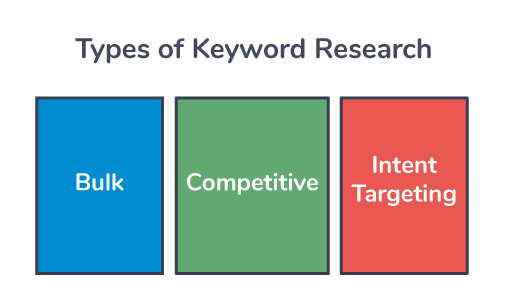September 9, 2021 •DJ Team

September 9, 2021 •DJ Team

Keyword research doesn’t need to be complicated. With the right mix of curiosity, analytical thinking, and tools, you can become a keyword research pro.
Keyword research is the process of discovering which words and phrases your potential customers are using to search for websites and information online.
A short-tail keyword consists of one or two words, but long-tail keywords can take the form of a longer phrase or even a complete question.
Let’s take the topic of planning a 30th birthday party. Here are several examples of keywords related to this topic:
“birthday party”
“30th birthday party”
“birthday dessert recipes”
“what to do for a 30th birthday”
“where should I have a birthday party in Chicago?”


At a minimum, identify your top 10 priority keywords that your marketing and website teams can incorporate into your ongoing content and that you can share while onboarding any new agencies or team members.
Many top keywords and questions reflect how people speak, including colloquialisms and even grammatical errors. If your top keyword or brand name is misspelled often, you may want to look at common alternatives.
Free or “freemium” tools like Google Keyword Planner or Ubersuggest will give you a limited snapshot of search volumes and keyword suggestions. For the best long-term SEO results, look for a tool that will provide you precise search volumes, competitor analysis, content tools, and marketing attribution insights.
To conduct keyword research for a blog, start by making a list of basic topics, keywords, and phrases related to your business, services, and industry. From there:
To recap:

DemandJump’s marketing insights platform takes the guesswork out of building your own content strategy.
With a prioritized list of content to create, one-click SEO content briefs for new content, recommendations for updating current content you are sure to see results - fast!
Work smarter with an automation tool designed to make content marketers look like rockstars.
Write content that ranks fast, and save time doing it - get started today!